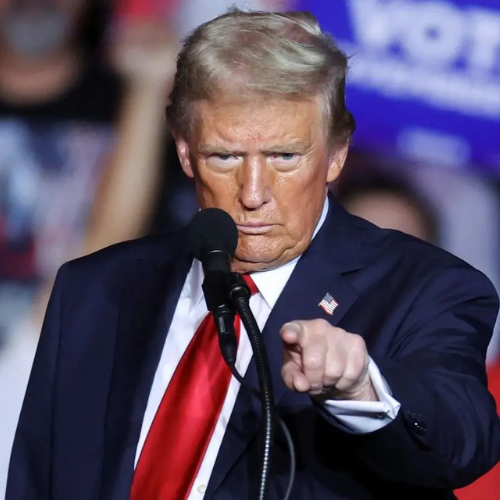Donald Trump’s return to the White House could bring major changes to U.S. foreign policy. His “America First” approach during his first term shaped a different direction for the country’s role in the world, and his victory now signals potential shifts in how the U.S. handles global issues. From the war in Ukraine to tensions in the Middle East and relations with China, Trump’s approach is expected to be controversial and disruptive. Let’s explore what his victory could mean for these regions.
Donald Trump’s Strategy for Ukraine and Russia: A Radical Shift
When Donald Trump was president, his stance on Ukraine and Russia was notably different from many other world leaders. He often expressed admiration for Russia and its president, Vladimir Putin, but his policies were not always in line with that praise. During his 2024 campaign, Trump made a bold claim: he could end the war between Russia and Ukraine “in a day.” However, he did not provide clear details on how he would achieve that.
Trump’s former advisers suggest that his approach could involve encouraging peace talks between Ukraine and Russia, while also placing conditions on the U.S. military support to Ukraine. Specifically, they recommend continuing U.S. weapons supply to Ukraine, but only if Kyiv agrees to negotiate with Russia. Another condition could be the delay of Ukraine’s desire to join NATO, which is a major point of tension in the conflict. While Trump’s critics fear this could mean abandoning Ukraine’s sovereignty, the former president’s supporters believe it could bring an end to the war more quickly and save U.S. resources.
Donald Trump has also expressed skepticism toward NATO, the military alliance created to protect European nations from Russia. He has criticized European countries for not contributing enough to NATO’s defense budget and suggested that the U.S. might reconsider its involvement in the alliance. This stance could deeply impact NATO’s future and the security of Europe, as Trump’s critics fear that his withdrawal from NATO might weaken the defense against Russian aggression.
Donald Trump’s Middle East Policy: Unpredictability and Peace Efforts
Donald Trump’s approach to the Middle East during his presidency was marked by strong support for Israel and a hardline stance on Iran. He pulled the U.S. out of the Iran nuclear deal, imposed harsh sanctions on Tehran, and even ordered the killing of Iran’s top military commander, General Qasem Soleimani. He also moved the U.S. embassy to Jerusalem, recognizing it as Israel’s capital, a decision that pleased many of his supporters but angered Palestinians and other Arab nations.
Trump’s Return Threatens Iran with Israeli Strikes and Sanctions
In the 2024 election campaign, Donald Trump promised to bring “peace” to the Middle East, including resolving the Israel-Hamas conflict in Gaza and the Israel-Hezbollah conflict in Lebanon. However, he has not explained exactly how he would do this. He has argued that if he had been president during the recent attacks on Israel by Hamas, they wouldn’t have happened because of his “maximum pressure” policy on Iran, which funds Hamas.
Trump’s history of working with Israel’s Prime Minister Benjamin Netanyahu is another important factor. Netanyahu praised Donald Trump as Israel’s “best friend” in the White House. While Trump’s policies were seen as pro-Israel, they also alienated the Palestinians and destabilized the region in some eyes. His deals, like the “Abraham Accords,” led to peace between Israel and some Arab countries but did not address Palestinian statehood, leaving Palestinians even more isolated.
How Donald Trump would manage the current situation in Gaza, especially with the ongoing humanitarian crisis, remains uncertain. His unpredictability, which some see as an asset in diplomacy, could either help or harm efforts to bring stability to the region.
Donald Trump’s China Policy: Trade Wars and Tough Tactics Ahead
One of Donald Trump’s key foreign policy focuses during his first term was challenging China, both economically and strategically. He called China a “strategic competitor” and imposed tariffs on Chinese goods to address what he saw as unfair trade practices. His aggressive stance led to a trade war between the two nations, with China responding by imposing tariffs on U.S. exports.
Trump’s position on China could become even more confrontational if he wins again. He has threatened to use tariffs as a tool to force China to back down on issues like trade imbalances, technology theft, and military expansion in the South China Sea. He has also made it clear that he would not hesitate to take tough measures on Taiwan, a self-governing island that China views as part of its territory. Trump claimed that if China tried to block Taiwan, he could stop them through tough economic sanctions and force.
Donald Trump’s admiration for Chinese President Xi Jinping, calling him both “brilliant” and “dangerous,” reflects his complex view of the Chinese leader. While Trump praises Xi’s leadership, he also recognizes China as a serious rival. His policies towards China have already led to changes in global trade, and a second Donald Trump presidency could further escalate tensions between the U.S. and China, impacting economies and global security.


